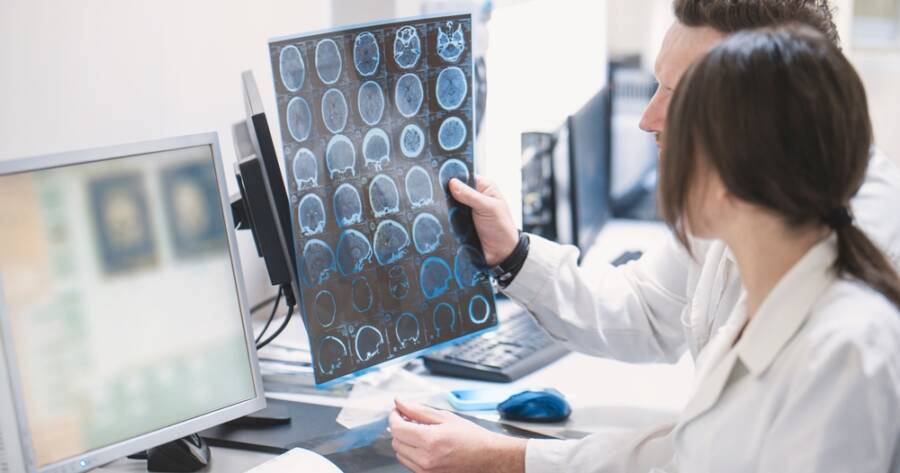Recognizing the need for a neurological consultation can have a profound impact on managing various neurological conditions. Neurologists are specialists equipped to identify disorders early, often when symptoms are subtle yet significant. By understanding indicators such as chronic headaches, seizures, memory lapses, and vision issues, individuals can seek timely medical advice.
Understanding When to Seek Neurological Consultation
Knowing when to consult a neurologist is crucial for diagnosing and managing a range of neurological conditions. Neurologists specialize in the brain and nervous system and are trained to identify underlying neurological disorders, which can often present subtly in their early stages.
Recognizing key indicators such as persistent headaches, seizures, memory disturbances, and vision problems can make a significant difference in timely diagnosis and intervention. By understanding these symptoms, individuals can make informed decisions about when to seek medical advice and possibly prevent the progression of serious conditions like Alzheimer’s disease and epilepsy through the use of neurologic examinations.
Headaches and Seizures
Chronic headaches and migraines may be more than just annoying; they could signify a deeper neurological issue requiring medical attention. Headaches accompanied by symptoms like dizziness, numbness, or vision changes often need a comprehensive assessment by a neurologist. They can distinguish between common migraines and potential neurological disorders thanks to specialized evaluation methods.
Seizures, another critical sign, indicate abnormal electrical brain activity and necessitate immediate neurologist intervention. With symptoms ranging from convulsions to unexplained falls, a neurologist can identify causes and provide appropriate treatment for conditions like epilepsy or potential brain tumors.
Memory, Vision, and Speech Problems
Experiencing persistent memory issues or unexplained forgetfulness may warrant neurological evaluation. These symptoms are often early indicators of conditions like dementia or Alzheimer’s, with neurologists employing specialized tests and imaging to determine their causes. Besides memory, persistent vision problems such as double vision can be symptomatic of deeper neurological disorders.
Neurologists often work with ophthalmologists to identify the problem and offer solutions. Speech difficulties, especially sudden onset, can be alarming and require instant assessment to rule out causes like strokes, enabling timely interventions to prevent further damage and to optimize outcomes.
Dizziness, Gait Imbalance, and Tremors
Feeling dizzy or experiencing balance issues without a known cause can severely impact one’s life quality. While these symptoms may relate to inner ear problems, their potential to indicate neurological disorders requires thorough evaluation by a neurologist. Abnormal walking patterns could stem from issues involving the nervous system, necessitating specialized diagnostic procedures.
Additionally, experiencing tremors or unintended rhythmic movements often links to conditions like Parkinson’s disease. Addressing these symptoms with a neurologist can lead to proactive management and improved quality of life through comprehensive care.
Pain and Facial Asymmetries
Unusual pain characterized by a burning sensation or electric shock feeling often indicates nerve disorders. Neurologists are particularly skilled in diagnosing and managing conditions like trigeminal neuralgia or peripheral neuropathies.
Facial asymmetries, such as unevenness or drooping, may point to severe neurological issues like strokes or Bell’s palsy, and seeking early intervention from a neurologist can prevent further deterioration. It is essential for individuals to take these signs seriously to ensure they receive appropriate care and intervention.
Preparing for Your Neurology Appointment
Preparation is a vital step in maximizing the benefits of a neurology appointment. Bringing detailed records of symptoms, alongside personal and medical history, allows neurologists to make well-informed diagnoses and treatment plans.
This setup ensures that all necessary aspects of the condition are discussed, and avenues for effective management are identified. Cooperation with neurologists and potentially related specialists is emphasized to achieve optimal health outcomes and address all concerns.
Why You Should Learn More About Neurological Symptoms Today
Understanding the signs that indicate the need for neurological consultation empowers individuals to seek timely medical intervention. Given the complexity and potential severity of neurological disorders, identifying symptoms early can prevent complications and enhance treatment efficacy.
As neurological conditions often manifest subtly, learning what symptoms require attention could be vital in maintaining neurological health. Individuals are encouraged to continue their education on this topic to ensure they have the knowledge to act appropriately when experiencing concerning symptoms.
Sources
Recognizing Neurological Signs



